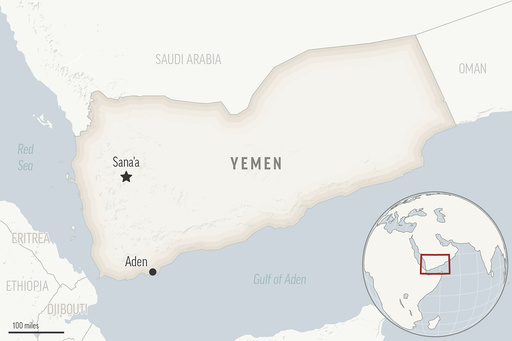Yemen finds itself entangled in an escalating military conflict that could potentially spiral beyond control, as indicated by the U.N. special envoy for the war-torn nation, Hans Grundberg. In a briefing to the U.N. Security Council, he expressed serious concerns over the country’s involvement in the ongoing turmoil in the region.
Grundberg noted with regret that the repeated attacks on international shipping conducted by Houthi rebels significantly heighten the likelihood of an environmental disaster in the Red Sea. The rebels’ aggressive actions are reportedly part of their support for Hamas, which aligns with the backdrop of violence following Hamas’ recent attack on Israel on October 7, leading to the ongoing conflict in Gaza.
In the same meeting, acting humanitarian chief Joyce Msuya joined Grundberg in calling on the Houthis to cease their assaults on international maritime trade. They also pressed for the immediate release of numerous U.N. workers, NGO personnel, diplomats, and civil society members who have been detained since June.
Msuya condemned the Houthis’ recent actions to label a substantial number of the detained individuals for criminal charges, deeming these allegations unfounded. Among those held are three U.N. personnel, including two from UNESCO and one from the human rights office. These individuals were taken into custody at various points in 2021 and 2023.
The Houthis had previously claimed the detainees were part of an “American-Israeli spy network,” a statement that has been strongly refuted by the U.N. and various humanitarian organizations, as well as multiple governments.
Since the conflict’s onset in 2014, the Houthis have fought against Yemen’s internationally recognized government with the backing of a Saudi-led coalition. Hopes for renewed peace talks dramatically faded following the catastrophic events of October 7, which resulted in nearly 1,200 fatalities in Israel, primarily among civilians. Around 250 individuals were taken hostage in the aftermath, with about 100 still unaccounted for. Meanwhile, the offensive actions in Gaza have reportedly resulted in over 42,000 Palestinian deaths, the majority of whom are believed to be women and children, though the specifics regarding combatants remain unclear.
Grundberg conveyed to the council that the Yemeni population yearns for peace and continues to strive toward it, yet the prospects for mitigating the intensifying violence plaguing the region seem increasingly remote. “Their hopes for a more promising future now lie under the threat of a potentially catastrophic regional conflict,” he lamented.
In their campaign that began since the Gaza conflict escalated, the Houthis have targeted over 80 merchant vessels with missiles and drones. They have successfully seized one ship and sunk two, resulting in the deaths of four sailors and severely disrupting maritime traffic in the Red Sea, which previously facilitated the passage of approximately $1 trillion worth of goods annually.
Grundberg highlighted an incident involving the Greek-flagged oil tanker Sounion in August, which narrowly escaped an environmental catastrophe, emphasizing that the risk of such disasters is mounting with each new attack. In retaliation, a U.S.-led coalition has initiated airstrikes within Yemen, while Israel has carried out attacks on Hodeida, a vital port for humanitarian aid and commerce, raising concerns for the nation that heavily relies on imports.
Msuya expressed significant alarm over the ongoing assaults on the Hodeida port and the smaller Ras Issa port. While these ports are still able to receive essential commercial and humanitarian shipments, the airstrikes have inflicted damage to critical port infrastructure. “Power stations in Hodeida city are currently operating at very limited capacity,” Msuya stated, adding that the U.N. is providing assistance to health facilities to maintain necessary services.
Last month, Msuya informed the council that the U.N. had scaled back its operations in Yemen due to the Houthi crackdown on its personnel and those of other organizations. She warned that these arbitrary detentions and unfounded accusations severely impede the U.N.’s capacity to deliver critical humanitarian aid. “The humanitarian situation in Yemen is deteriorating, both in scale and severity, and instances of hunger continue to escalate,” she stressed.
As of August, the number of Yemenis experiencing food insecurity reached unprecedented heights, with severe food deprivation levels in Houthi-controlled areas doubling since last year. Msuya noted that the U.N. has appealed for $2.7 billion to assist 11.2 million people in Yemen this year, but so far, the appeal is only 41% funded. An urgent need for $870 million remains, without which nine million Yemenis risk being cut off from emergency food assistance in the coming months.
Cholera continues to be a major concern, as over 203,000 suspected cases have been reported alongside more than 720 related deaths since March. Msuya indicated that funding for cholera response efforts has already been exhausted, forcing the U.N. and health partners to shut down 21 of 78 diarrhea treatment facilities and 97 out of 423 oral rehydration centers.



